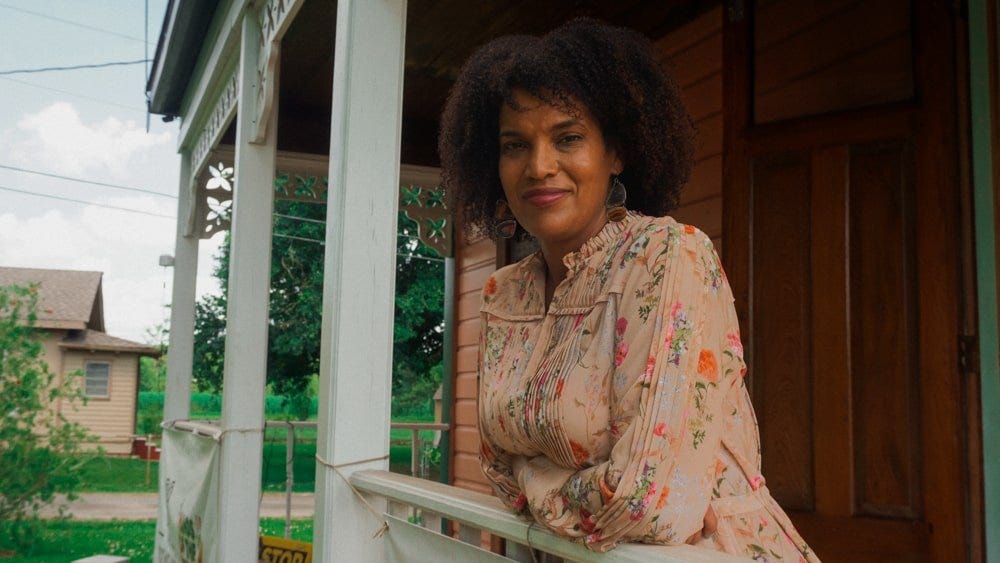Pollution is legal while reporting it carries a million dollar fine
At the heart of a new lawsuit against Louisiana: a battle over narrative, public health, and the right to tell the truth.
Last week, a coalition of environmental justice groups including The Descendants Project, RISE St. James, Micah Six Eight Mission, The Concerned Citizens of St. John, Clairborne Avenue Alliance Design Studio, and JOIN for Clean Air filed a federal lawsuit against the state of Louisiana.
The case challenges a law that allows the state to fine residents up to one million dollars for sharing air quality data not collected through government-approved systems. This includes data gathered by community members living near industrial facilities. It also includes people trying to protect their families from toxic air.
The law is called the Community Air Monitoring Reliability Act. It does not hold polluters accountable. Instead, it targets the people documenting the harm (!).
“We are prepared to just keep moving forward with the work that we've been doing and trying our best to communicate that to the public,” said Dr. Joy Banner of The Descendants Project in a recent interview with NPR. “If we have data that is alarming, our community needs to know for their own safety.”

Exactly one year ago, we reported on three chemicals that are regularly released into the air in Louisiana’s River Parishes: benzene, formaldehyde, and nitrogen oxide. These pollutants are emitted from petrochemical plants and refineries, often through flaring that sends thick smoke into residential areas.
For some context, the Occupational Safety and Health Administration (OSHA) sets workplace exposure limits for these chemicals between 0.75 and 3 parts per million. In the areas we analyzed, estimated public exposures far exceed those limits. Long-term contact with these toxins has been linked to leukemia, lung disease, and other chronic conditions.
What the data shows is clear— and so is the intent. Louisiana isn’t just siding with polluters; it’s helping shield them from accountability. And they’re not even hiding it.
Here’s an episode from our podcast People over Plastic titled “Shady Business” where we go deep into the legacy of the petrochemical industry in the Gulf South and the corporate land grabs that continue to threaten Black parishes in Cancer Alley.
Dr. Joy Banner, co-founder of The Descendants Project, speaks to the interlocking legacies of slavery, land theft, and toxic industry that shape daily life in Louisiana’s River Parishes. Her community is made up of the descendants of enslaved people forced to work on plantations that now sit beside massive petrochemical plants.
In “Shady Business”, she breaks down how companies like Formosa Plastic acquired ancestral land through deceit, how zoning corruption enabled industrial expansion, and why she continues to fight despite the state and federal government repeatedly siding with polluters.
📖 You can also read more about her story in our article: In the Afterlife of Slavery
“We are in the afterlife of slavery,” she says. “Our identity as descendants connects to the need to tell the truth.”
As Dr. Joy Banner and other community leaders have been saying all along: laws like this are written to protect profits, not people. They punish lived experience and discourage communities from organizing. And they rely on the idea that no one is paying attention, even as our First Amendment rights are being stripped away.
But we are paying attention— and we’re amplifying, documenting, and refusing to let this go unseen. The people of Louisiana are still organizing and still naming what the state refuses to measure. No law will stop that.
🌀 Thank you for reading.
People over Plastic was recently shortlisted for the International Women’s Podcast Awards and named one of the 100 Best New Orleans Podcasts by Feedspot.
We’re honored by these recognitions and grateful to everyone who continues to listen, share, and support media that centers truth and justice.




Again, I’m so, so grateful for this newsletter!